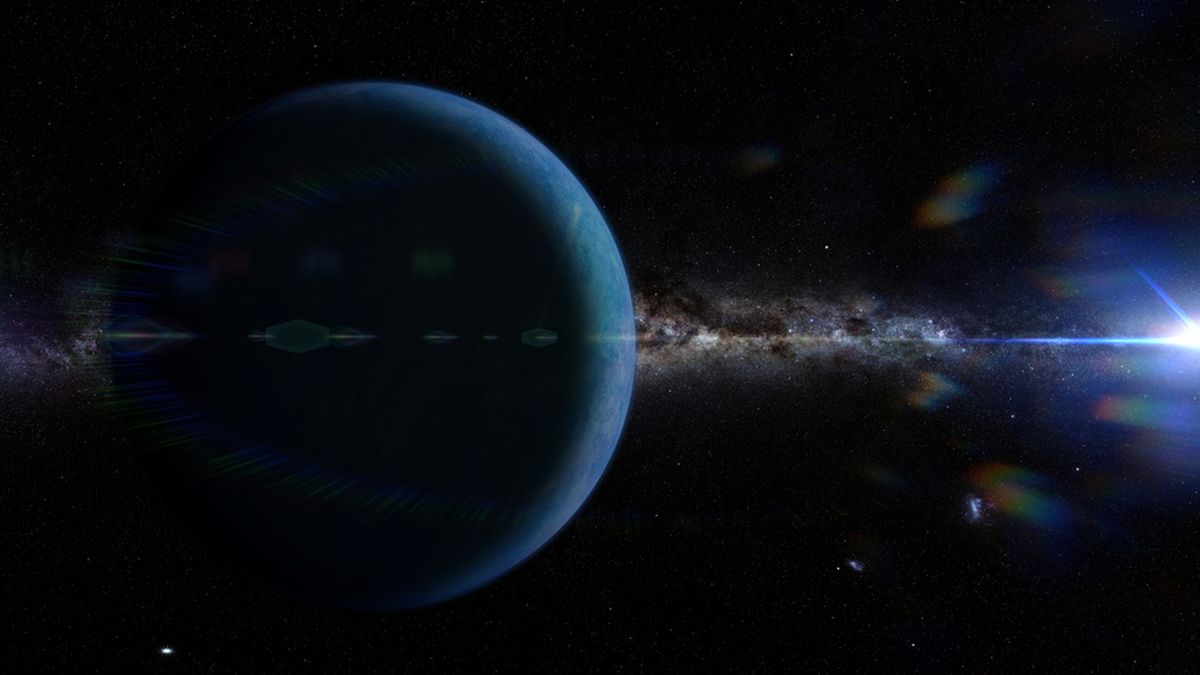Elusive Planet Nine could be an alternative form of gravity masquerading as a planet, study claims
By Harry Baker published October 16, 2023
Astronomers suggest that an alternative concept of gravity, known as modified Newtonian dynamics, could explain orbital inconsistencies that have previously pointed to the existence of a ninth planet in the solar system.

An artist's impression of what Planet Nine might look like at the edge of the solar system. (Image credit: Shutterstock)
The elusive Planet Nine, which is theorized to be lurking somewhere in the outer reaches of the solar system, may not be a planet after all, a new study suggests. Instead, what we assumed to be a massive object could be evidence that gravity doesn't work like we thought it does. But the new theory doesn't sit well with everyone.
The Planet Nine hypothesis, first proposed in 2016, argues that the unusual orbits of objects in the Kuiper Belt beyond Neptune, which seem to be being pulled away from the sun, can be explained by the presence of an undiscovered ninth planet up to 10 times more massive than Earth. Astronomers have been looking for Planet Nine ever since. However, despite searching almost half of the night sky, they have so far come up empty-handed.
In the new study, published Sept. 22 in The Astronomical Journal, researchers proposed another explanation for the gravitational anomalies observed in the outer solar system — that there aren't any anomalies. Instead, the team shows that the inconsistencies disappear completely when applying an alternative concept of gravity known as modified Newtonian dynamics (MOND).
Isaac Newton's second law states that gravity tugging on an object is inversely proportional to the distance between the object and the object that is pulling it, meaning that gravity gets weaker as the distance between the two objects increases. But MOND tweaks this and suggests that past a certain distance, the gravitational pull is directly proportional to the distance, meaning the strength of the gravitational pull does not drop off as quickly at greater distances. This suggests that objects orbiting a larger object at great distances, such as stars on the outskirts of spiral galaxies like the Milky Way, would experience a greater gravitational pull than the second law would suggest.
More:
https://www.livescience.com/physics-mathematics/gravity/elusive-planet-nine-could-be-an-alternative-form-of-gravity-masquerading-as-a-planet-study-claims
